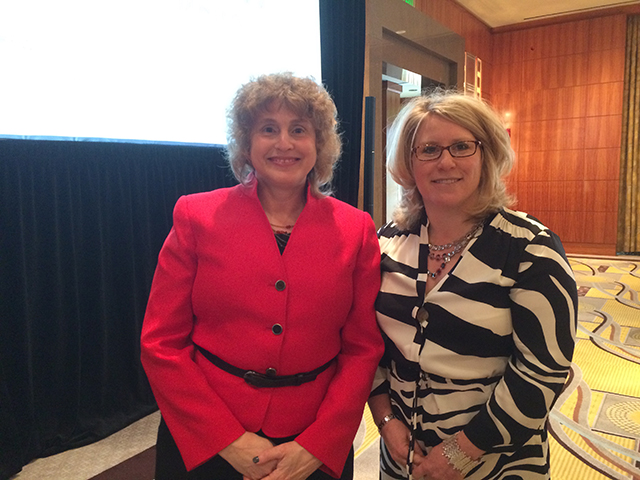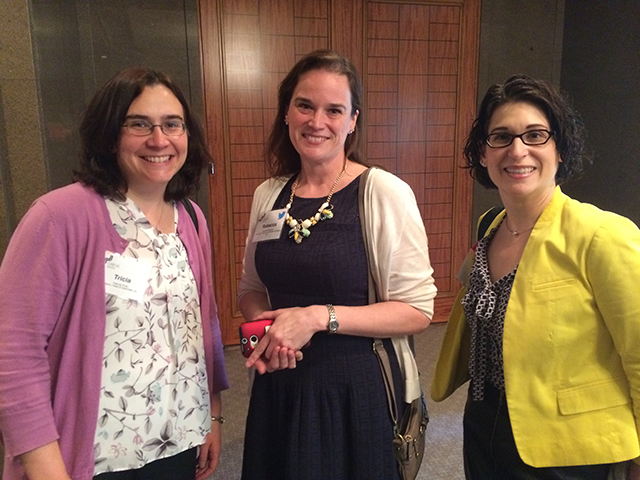Transportation is not what it is but what it does, Massachusetts Secretary of Transportation Stephanie Pollack told CREW’s March 2016 luncheon attendees on March 10. It shapes and supports the economies of communities and the region, and it connects people to opportunities.
A strong advocate of public transportation, and not a fan of highways and cars, during her Conservation Law Foundation days and since, Pollack was a surprise choice to be Governor Charlie Baker’s transportation chief. But Pollack’s combination of vision and pragmatism, on display in a forceful and fact-packed address at the Mandarin Oriental, has proved it was a good selection, particularly after last year’s “snowmaggedon” debacle for the MBTA.
Much of what the administration, MBTA, and Mass Department of Transportation have done since Baker took office has been planning for a better future for what Pollack described as one of “institutional dysfunction – incapable of reliable service.”
Pollack said long-needed “tough love” was being given to the T, and in eight months improvement is beginning to show up in statistics. About a third of the system’s problems are attributable to signals, and the $40 million a year that had been spent on that will be hiked to $500 million.
The capital program for transportation was $2 billion a year and has been pushed to $3 billion, possibly to $3.5 billion, which is as much as was being spent during the Big Dig.
“The key is prioritizing” projects and improvements, she said. And a “Universe of Projects” has been assembled, with more than 7,000 ever contemplated or dreamed of over the last decade. They’ll go forward based on: return on investment, economic development potential, how they affect the environment, and of course “whether they move people faster.”
A focus is being put on making state land available for transportation-oriented development, and a former Boston Redevelopment Authority staffer is in charge of the program, which they’re calling “Open for Business.”
Pollack said no final decision has been made on moving forward with the Green Line extension from Lechmere Station through Somerville. The project was found to be $1 billion over budget before anything but infrastructure work was started. And the T has some $7.4 billion overall in deferred maintenance. That work can’t continue to be neglected, she said.
The state’s $16 billion five-year plan now being written is pretty much “eat your vegetables” projects like that, she said, but there is some “fun stuff” in it. Namely a plan to improve pedestrian experiences (she singled out the Design Center-to-Silver Line corridor) and bike access.
Pollack said the administration is trying to build a sustainable system, on with technical and engineering talent and not just relying on consultants. (She needs 10 IT people now – know anybody?)
Answering questions, Pollack said that the Turnpike toll booths are going the way of the buggy whip “before the end of the year – I’ve quit giving dates,” and that the T and DOT are trying to make public-private arrangements actually work, instead of continuing to be “private-not-very public partnerships.” Making the Hynes Convention Center Green Line station accessible as part of an adjacent residential project is part of that.
Fare increases are always controversial, but when the ones recently announced are in effect riders of the T will still only pay 40 percent of the cost of operations, and that doesn’t even count expenditures on the capital budget or interest on debt. “That’s at the low end nationally,” she said.











